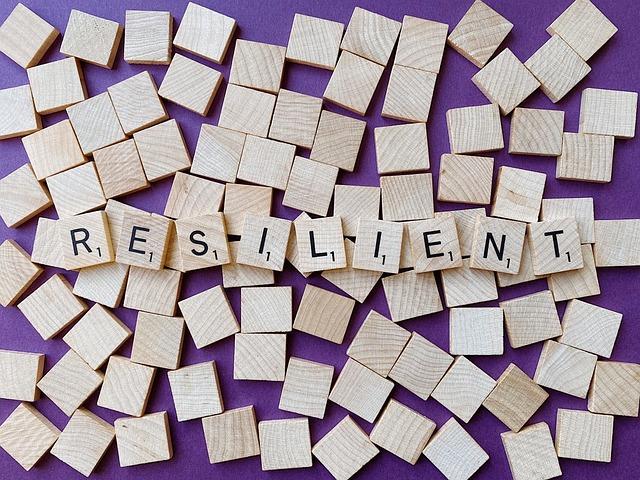In the whirlwind of modern life, where stress and chaos often seem to be our constant companions, finding a moment of peace can feel like a rare treasure. Imagine, though, a simple practice that invites tranquility and clarity into your daily routine—a practice that not only nurtures the mind but also enriches the soul. Enter the world of gratitude journaling, a mindful endeavor that transforms fleeting thoughts of thankfulness into lasting reflections. As the ink flows onto the page, gratitude journaling offers a quiet sanctuary for mental well-being, revealing its profound benefits one entry at a time. In this exploration, we delve into how this practice, rooted in appreciation, can serve as a beacon of positivity, enhancing mental health in ways both subtle and significant.
Cultivating Positivity Through Daily Reflections
Incorporating gratitude journaling into your daily routine can be a transformative experience, not just for your mental well-being but for your overall outlook on life. This simple practice encourages you to focus on the positive aspects of your day, fostering a mindset of appreciation and awareness. By consistently reflecting on what you’re thankful for, you begin to cultivate a more optimistic perspective, which can have profound effects on your mental health.
- Improved Mood: Regularly acknowledging what you are grateful for can enhance your mood and create a more balanced emotional state.
- Reduced Stress: Focusing on positive elements in your life helps in reducing stress and anxiety, allowing you to manage daily challenges with greater ease.
- Enhanced Resilience: By recognizing the good even during difficult times, you build resilience and the ability to bounce back from setbacks.
- Increased Mindfulness: The act of writing down your thoughts encourages a mindful approach to daily life, fostering a deeper connection to the present moment.

Strengthening Emotional Resilience with Gratitude Practices
Embracing gratitude practices, particularly through journaling, can significantly bolster one’s emotional resilience. When we consistently document moments of gratitude, we cultivate a mindset that seeks positivity even in challenging times. This shift in perspective doesn’t just help us navigate daily stresses but also equips us with a mental toolkit to handle more significant emotional upheavals. By focusing on gratitude, we redirect our attention away from negativity, allowing a more balanced and constructive emotional response to life’s unpredictability.
Here are some transformative effects of integrating gratitude journaling into your routine:
- Enhanced Self-Awareness: Regularly writing down what you’re grateful for encourages introspection, helping you understand your emotions and triggers better.
- Improved Mood: Shifting focus to positive experiences can lead to a noticeable uplift in mood, reducing symptoms of anxiety and depression.
- Strengthened Relationships: Recognizing and appreciating the positive aspects of relationships can foster deeper connections and empathy towards others.
- Increased Optimism: Consistent gratitude journaling can gradually build a more optimistic outlook, enabling you to approach future challenges with a positive mindset.

Enhancing Mindfulness and Reducing Stress
Gratitude journaling is a transformative practice that can profoundly impact your mental well-being. By dedicating a few minutes each day to jot down the things you’re thankful for, you cultivate a mindset of positivity and awareness. This simple act encourages you to focus on the present moment, helping to quiet the incessant chatter of a busy mind. As you regularly engage in this practice, you’ll likely notice a reduction in stress levels, as the emphasis on gratitude can shift your perspective away from stressors and towards appreciation.
- Improved Mood: Consistently recognizing the good in your life can lead to enhanced emotional resilience and a more stable mood.
- Increased Self-Awareness: Reflecting on your day and identifying moments of gratitude can help you become more attuned to your emotions and reactions.
- Better Sleep: Ending your day with positive thoughts can promote a more restful and rejuvenating sleep experience.
- Enhanced Relationships: Acknowledging the positive aspects of your interactions can strengthen bonds and foster a deeper connection with those around you.
By embracing gratitude journaling, you open the door to a more mindful existence, where stress takes a backseat to a life filled with appreciation and contentment.

Building Lasting Habits for Mental Well-being
Embracing the practice of gratitude journaling can be transformative for mental well-being, offering a multitude of benefits that enrich daily life. By consistently acknowledging the positive aspects of life, individuals can cultivate a more optimistic mindset, which serves as a buffer against stress and anxiety. This shift in perspective encourages mindfulness and presence, allowing for a deeper connection to the present moment. Gratitude journaling can also enhance emotional resilience, making it easier to navigate life’s challenges with grace and composure.
- Improved Sleep Quality: Writing down things you’re thankful for before bed can lead to a more peaceful and restful night’s sleep.
- Increased Empathy: Regularly reflecting on gratitude can foster a greater sense of empathy and compassion towards others.
- Enhanced Self-Esteem: By focusing on personal achievements and positive experiences, gratitude journaling can boost self-esteem and confidence.
Incorporating this simple yet profound habit into daily life can create a ripple effect, enhancing not only personal well-being but also positively impacting relationships and overall life satisfaction. Whether it’s jotting down a few lines in the morning or reflecting on the day’s highlights before bed, gratitude journaling is a powerful tool for nurturing a balanced and fulfilling mental state.






























